What could China's astonishing gold-buying spree mean for the world?
The frenzy for the safe-haven asset sweeping the People's Republic
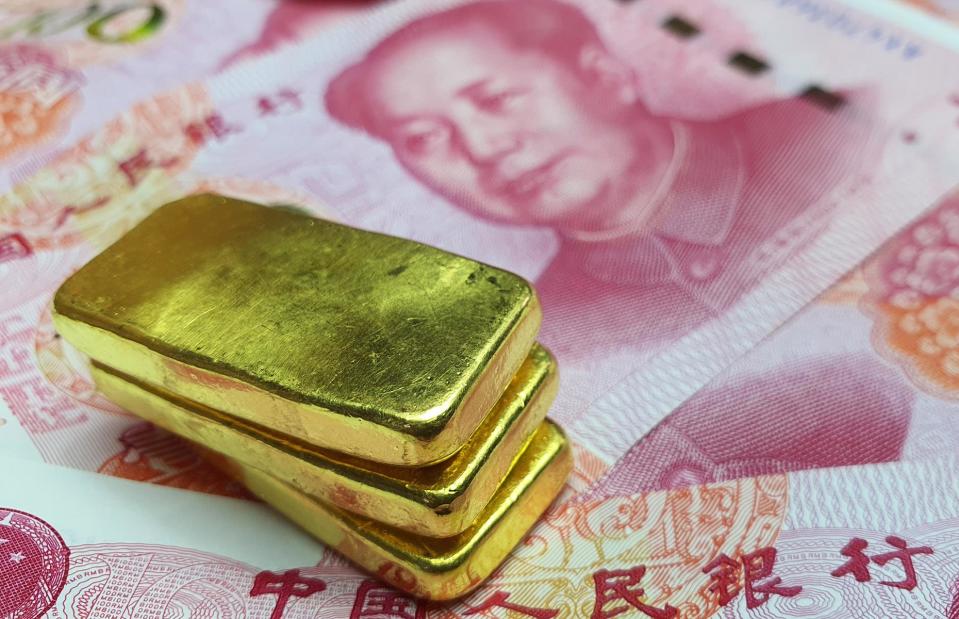
somkanae sawatdinak/Shutterstock
China is in the midst of a massive gold-buying spree. Consumer demand for the trusty commodity is skyrocketing and the nation's central bank is busily filling its coffers with vast quantities of bullion. As a result, global gold prices are reaching record levels.
With the country's gold fever showing no sign of slowing down any time soon, read on as we explore the extent of China's precious metal addiction and discover the possible reasons – some more troubling than others – behind its drive to stockpile gold like there's no tomorrow.
All dollar amounts in US dollars.
China's hunger for gold
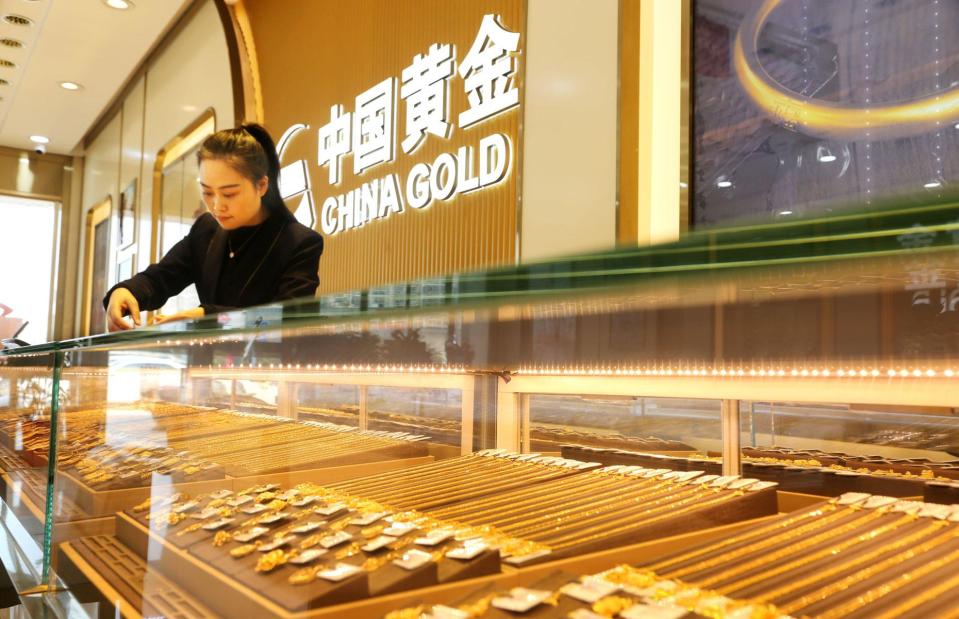
Cynthia Lee/Alamy
China's voracious appetite for gold is astounding. Insights from the World Gold Council show the People's Republic surpassed India as the world's number-one consumer of the precious metal last year.
Demand for investment gold surged 28% to 280 tonnes, which is currently worth around $21.1 billion (£16.6bn). Meanwhile, demand for gold jewellery rose 10% to 630 tonnes.
At the same time, the country's central bank purchased considerably more gold than any other, acquiring a record 735 tonnes. (Two-thirds of that amount was bought covertly, according to numismatics expert Jan Nieuwenhuijs). Based on the current price, this haul is worth a staggering $55.4 billion (£43.6bn).
The world's leading gold producer and second-biggest importer

Evgeny_V/Shutterstock
According to the latest World Bank figures, China is now the world's second-largest importer of non-monetary gold after Switzerland.
What's more, the People's Republic is also the top producer globally of the precious metal, which indicates exactly how fierce the demand for the commodity is.
The Gold Bullion Company pegs China's annual production at 375 tonnes. Russia is next with 325 tonnes, followed by Australia, Canada and the US, which respectively produce 314, 195 and 173 tonnes of gold per year.
Record global gold prices

Max Wiener/Alamy
China's gold mania is impacting global prices in a major way. The price per ounce of the commodity reached a record high of $2,454 (£1.9k) in May, up 66% from 2020, and remains vastly elevated.
As noted by The New York Times, the price has climbed to record levels despite contending with factors that usually make gold a less attractive investment, including a strong US dollar and higher US interest rates.
According to the newspaper, "there is a growing sentiment that the gold market is governed no longer by economic factors but by the whims of Chinese buyers and investors".
China's consumer gold rush and the slumping property market

STR/AFP via Getty Images
China's consumer gold rush has come at a troubled time for the nation's economy, with the slumping property market among the chief drivers.
Property became the go-to investment for the Chinese public back in the early 2000s when rules surrounding real estate ownership were relaxed.
However, a housing bubble of monumental proportions began to burst in 2020 when the government launched a crackdown on rampant property speculation. Mortgages became harder to obtain, sales slumped and property prices tumbled amid an immense oversupply of housing stock. Since then, scores of overleveraged developers have collapsed, including industry giant Evergrande.
Gold as the go-to investment
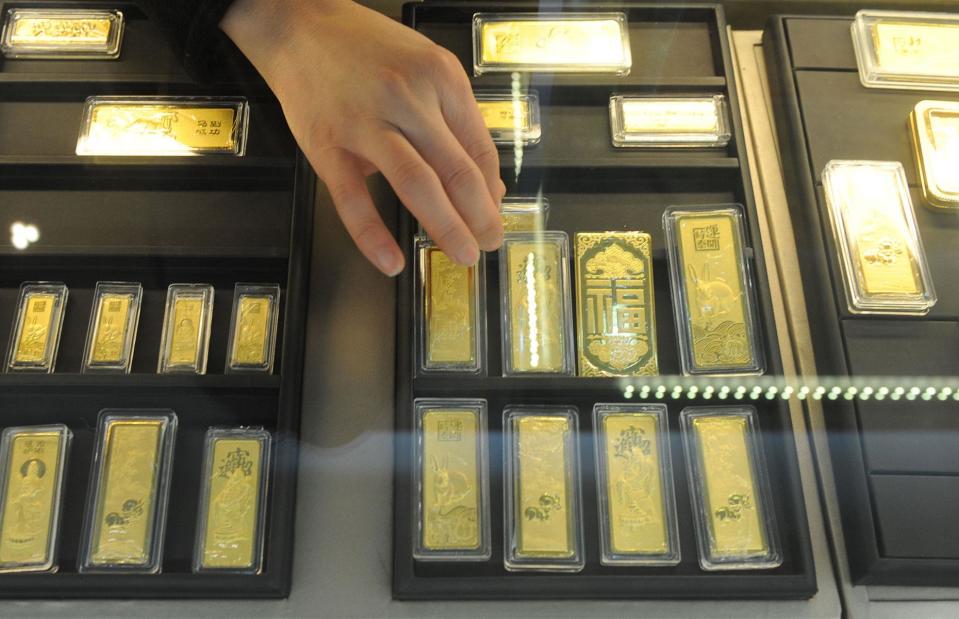
STR/AFP via Getty Images
For years, the nation's burgeoning middle classes pooled their investment cash into housing. The market remained relatively stable and, with prices on an upward trajectory, real estate was viewed as the most reliable investment.
The property market crash has been a rude awakening for the Chinese public, who have since lost confidence in the asset class. China's stock market has also taken a beating in recent years. According to the Cato Institute, the Chinese government "has long suppressed deposit rates and strictly limited investment choices by using capital controls".
With little else to put their money into, gold has emerged as the go-to investment for millions of Chinese citizens.
China's traditional fondness for gold
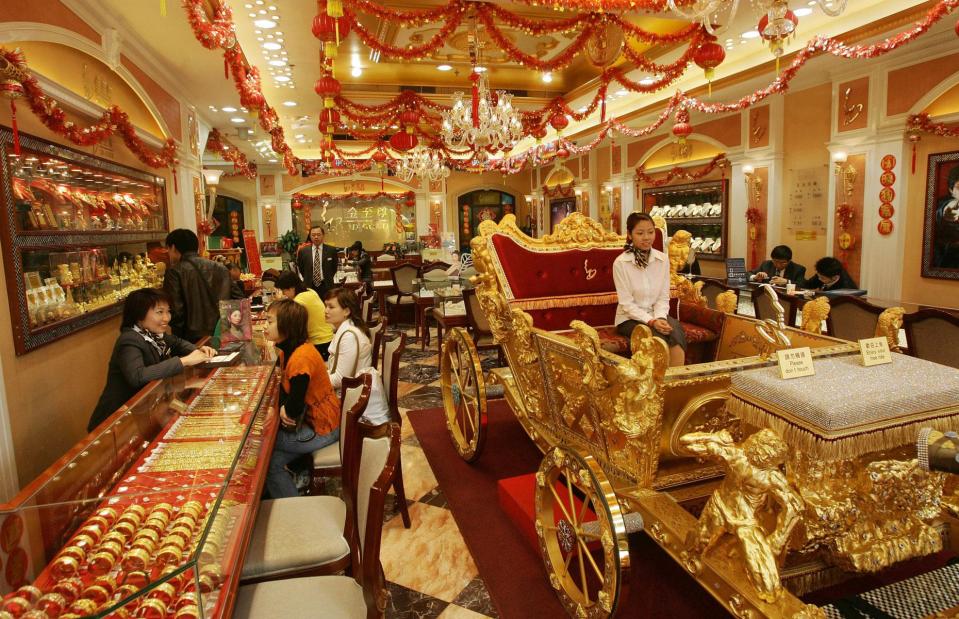
MIKE CLARKE/AFP via Getty Images
For centuries, gold has proved to be a reliable store of value. Unlike many other investments, it tends to perform well during periods of economic and political turmoil. As observed by The New York Times, there's an old Chinese saying that many are clearly inspired by: "Jade in prosperous times, gold in troubled times".
Indeed, gold is held in particularly high regard in Chinese culture, with the precious metal traditionally associated with future prosperity and general good fortune.
Given its solid reputation and the lack of alternative investment options now that property and the stock market are out of favour, it comes as no surprise that so many Chinese citizens are ploughing their spare cash into the prized metal.
China's Gen Z gold bean craze
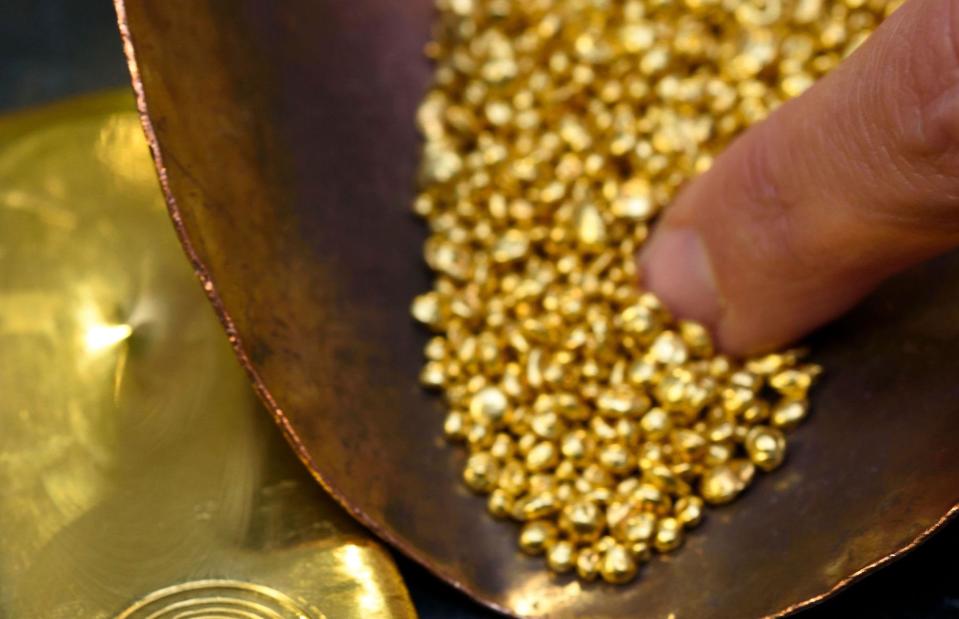
FABRICE COFFRINI/AFP via Getty Images
A decade ago, affluent middle-aged women – so-called "Big Mothers" – were the major buyers of gold in China, snapping up ingots and coins in droves.
Fast-forward to 2024 and Gen Z is taking the lead, thanks to a type of democratisation of China's retail gold market.
Reportedly spread by social media sites like Weibo, a craze for purchasing dinky gold beans has gone viral among the country's youth. These easy-to-acquire nuggets weigh as little as a gram and sell from just $55 (£44) a pop.
China's gold bean mania
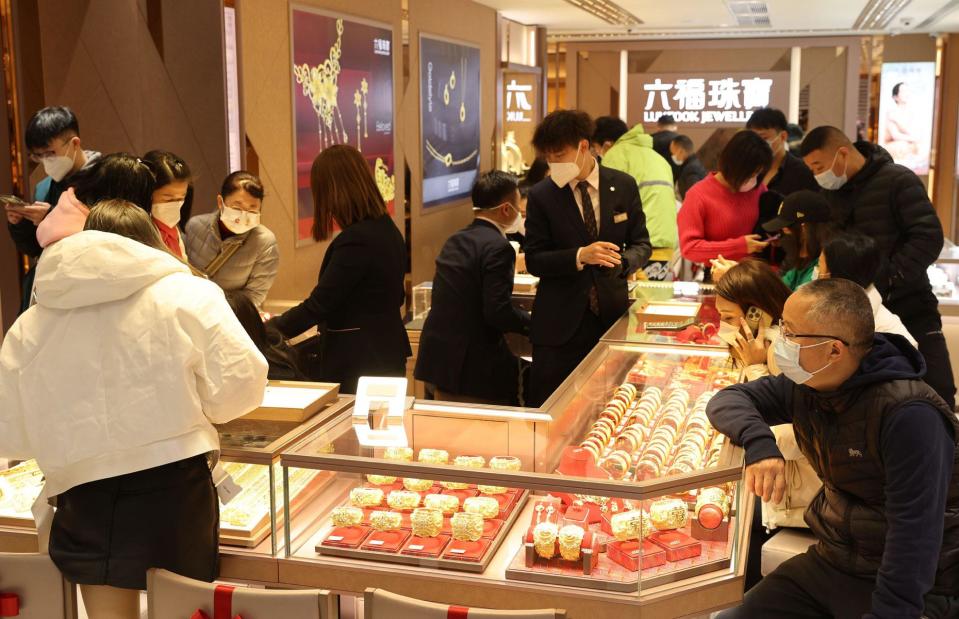
South China Morning Post/Alamy
The must-have beans are sold in jewellery stores, as well as being heavily promoted on e-commerce sites such as Alibaba’s Taobao. They're even available from major banks, including Merchants Bank Co. Adding further to their allure, the minuscule gold collectibles come in several shapes, ranging from peanut to persimmon.
Once purchased, the beans are stashed away in a special glass jar and set aside for a rainy day – although some influencers like to take their gold bean collection out and about to create some 24-carat content.
The downsides of China's gold bean obsession
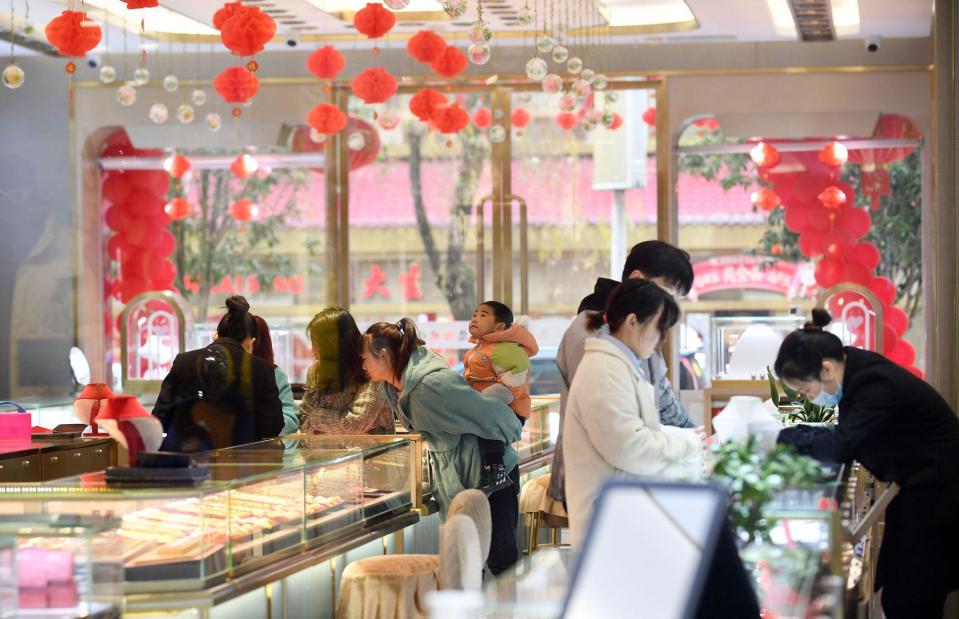
Cynthia Lee/Alamy
There's just one major snag: gold beans can be up to 30% more expensive than the gold spot price. That's according to Nikos Kavalis, MD of consultancy firm Metals Focus, who recently spoke to The Straits Times.
According to Kavalis, young people in China would be better off investing in gold exchange trading funds. With unscrupulous sellers hawking gold beans that are heavily mixed with zinc and other cheap metals, the risk of being duped is high and there's also the danger of the beans being stolen.
While it's unclear how clued-up the nation's youth are about the cons of investing in gold beans, China's Gen Z citizens are going bonkers for the tiny treasures regardless.
The Chinese central bank's gold-buying spree
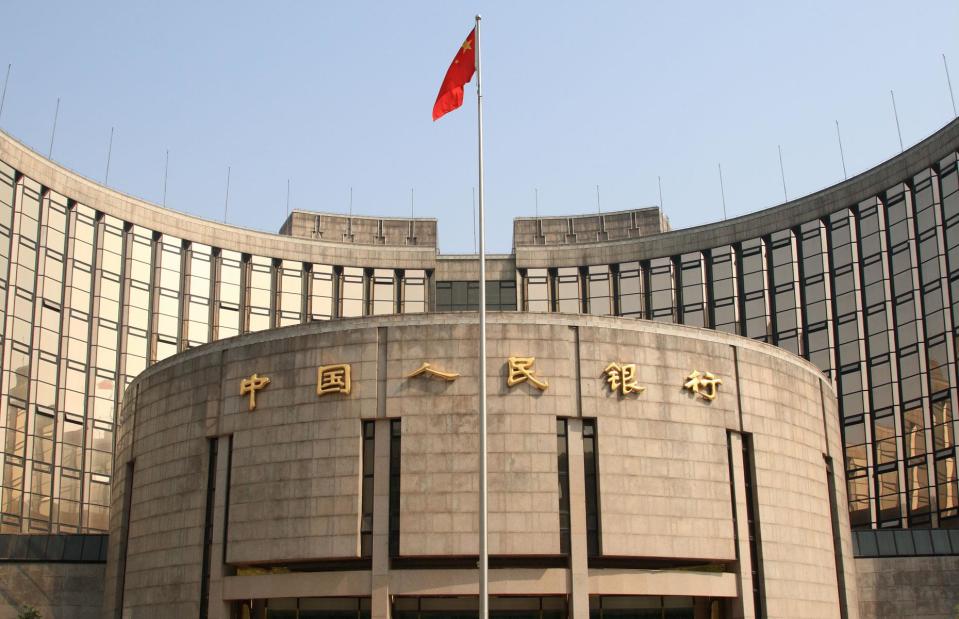
Gang Liu/Shutterstock
As the Chinese people scramble to park their investment cash in gold, the country's central bank is also buying up the precious metal.
As we've mentioned, China's central bank reportedly acquired a record 735 tonnes of gold last year. While approximately two-thirds of this is thought to have been purchased covertly, even the 225 tonnes that have been officially declared means China bought more gold in 2023 than any other central bank.
This is a significant increase from 2022, when the total stood at 62 tonnes, and is the largest annual total since at least 1977.
China's record-breaking gold purchases
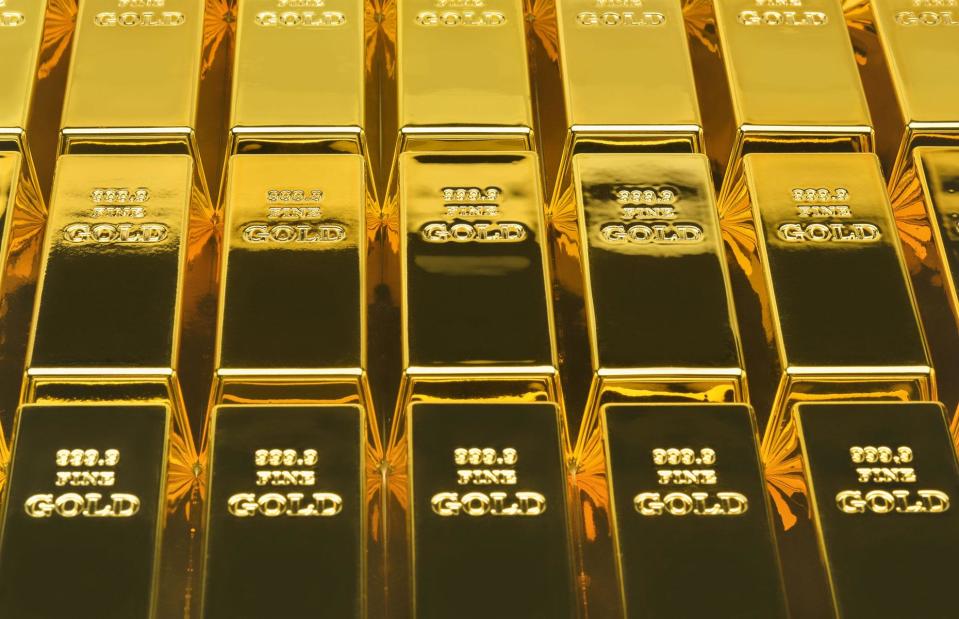
Pixfiction/Shutterstock
China's purchases represent almost a quarter of all the gold bought by the world's central banks in 2023. By way of comparison, Poland's central bank was the second-biggest buyer of gold last year, adding 130 tonnes to its reserves. This was followed by Singapore's central bank with 77 tonnes, Libya's with 30 tonnes and the Czech Republic's with 19 tonnes.
Speculation has been rife as to why China's central bank has been stocking up on so much gold. So what are the possible reasons?
China's surprisingly meagre gold reserves
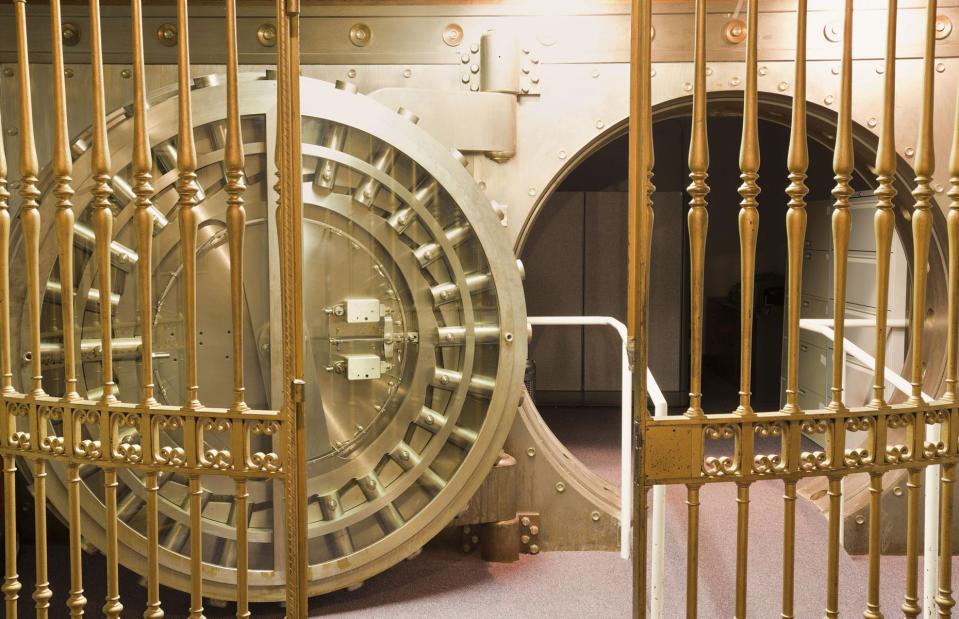
Henryk Sadura/Shutterstock
On a basic level, China appears to be diversifying its foreign reserves in a bid to de-risk. However, China's gold holdings as a proportion of total foreign reserves are relatively paltry. Even after the recent splurge, which has increased the nation's gold holdings to 2,262 tonnes, gold represents just 4.6% of China's total foreign reserves, according to the latest World Gold Council data.
This is in stark contrast to the US. America possesses 8,133 tonnes of the precious metal, more than any other country, with gold accounting for 71% of the nation's total currency reserves.
Turkey, on the other hand, leads when it comes to gold as a percentage of total foreign reserves. The country, which has been racked with inflation, now holds its entire foreign reserves in the safe-haven commodity.
Gold reserves in major nations
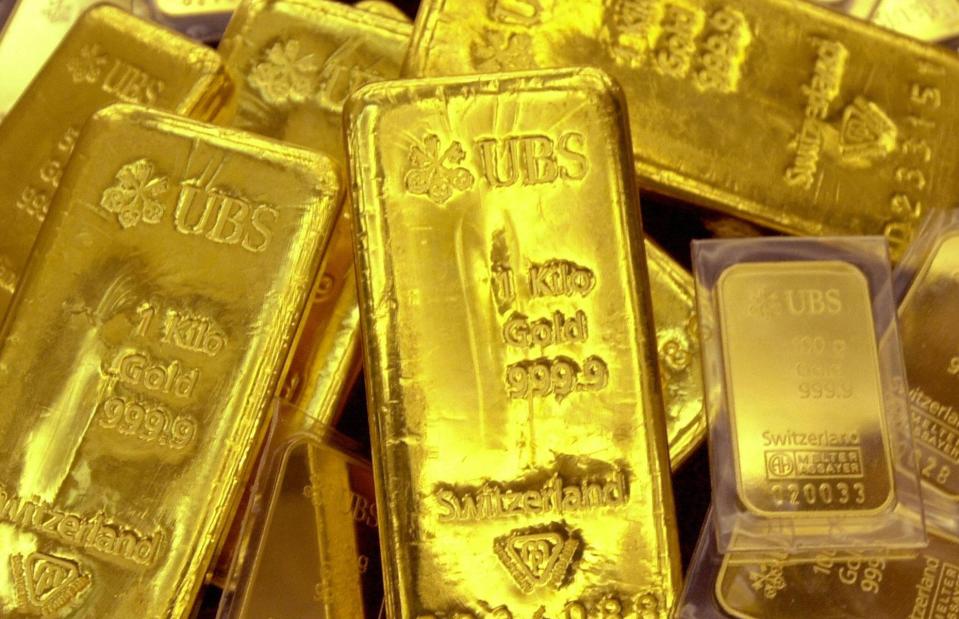
JUNG YEON-JE/AFP via Getty Images
Looking at other major countries, Germany keeps 70.6% of its foreign reserves in gold, while the comparative figures for France and Austria are 68.6% and 62% respectively. Russia's gold reserves make up 28.1% of its total, while the number for Spain is 19.3%.
Other nations rely less on gold. The precious metal represents 12.6% of the UK's foreign reserves and 10% of Australia's. The number for India is 9%, Ireland's is 6.7%, Japan's is 4.7% and Singapore's is 4.5%, while the United Arab Emirates is only 2.6%.
Countries with no gold reserves
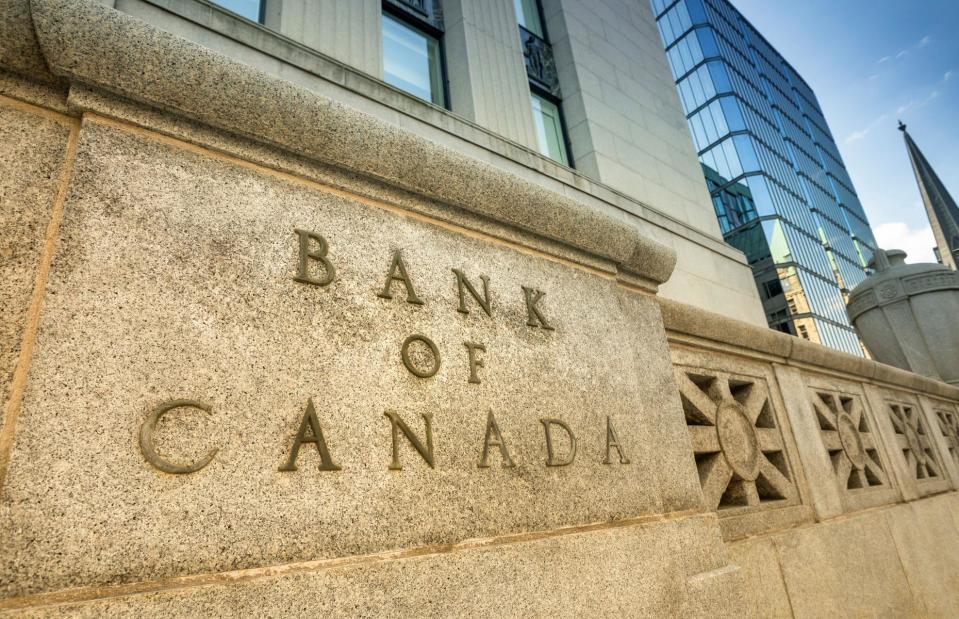
AevanStock/Shutterstock
A slew of countries have zero gold reserves to speak of. Among them is Canada, which might seem bizarre when you consider it's the world's fourth-biggest producer of the precious metal.
Though gold has many advantages, it has its drawbacks, too. A high-value physical commodity, it's expensive to store and secure, with bullion harder to sell than other types of foreign reserves, such as government bonds. Canada also has the luxury of excellent relations with the USA, so it doesn't have to worry about having its US dollar reserves frozen by the American government.
For these reasons, the Bank of Canada has chosen to ditch gold for the mighty US dollar, alternative commodity reserves and financial assets, including stocks and bonds.
China's foreign reserve vulnerability
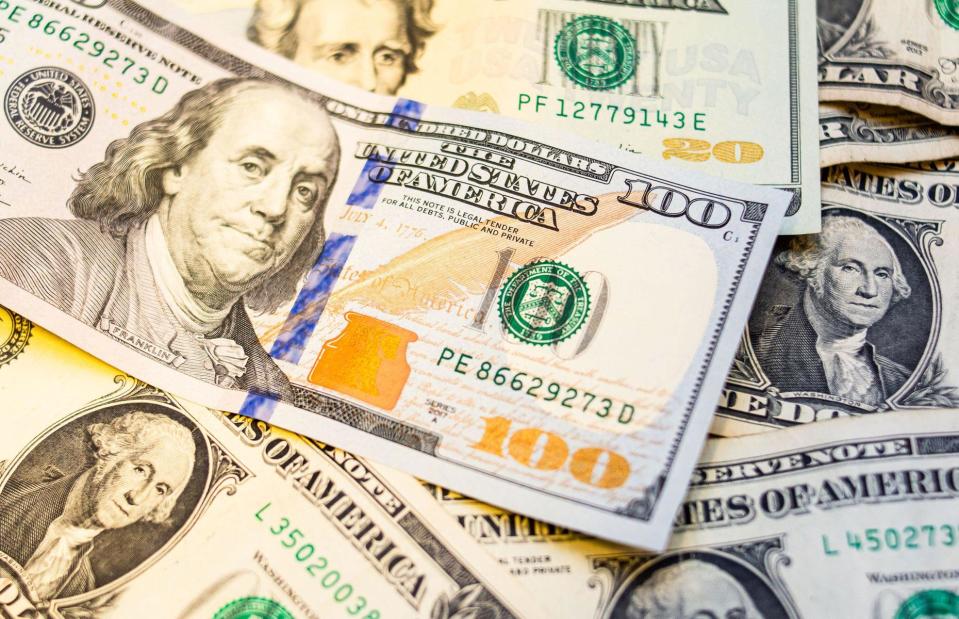
Davi Corrêa/Alamy
In contrast, China's relations with the US are nowhere near as amicable and have reached new lows over the past few years.
This presents a long-term strategic headache for Beijing, with the bulk of China's foreign reserves held in US dollars. The country actually has the highest foreign currency reserves in the world, with a total of $3.2 trillion (£2.5tn) at the last count.
It's arguably never wise to put the majority of your proverbial eggs in one basket, especially if an adversary can whip them away at any moment. The country's financial vulnerability really came to the fore in 2022 following the levying of tough Western sanctions on Russia after its illegal invasion of Ukraine.
China's US sanctions fear
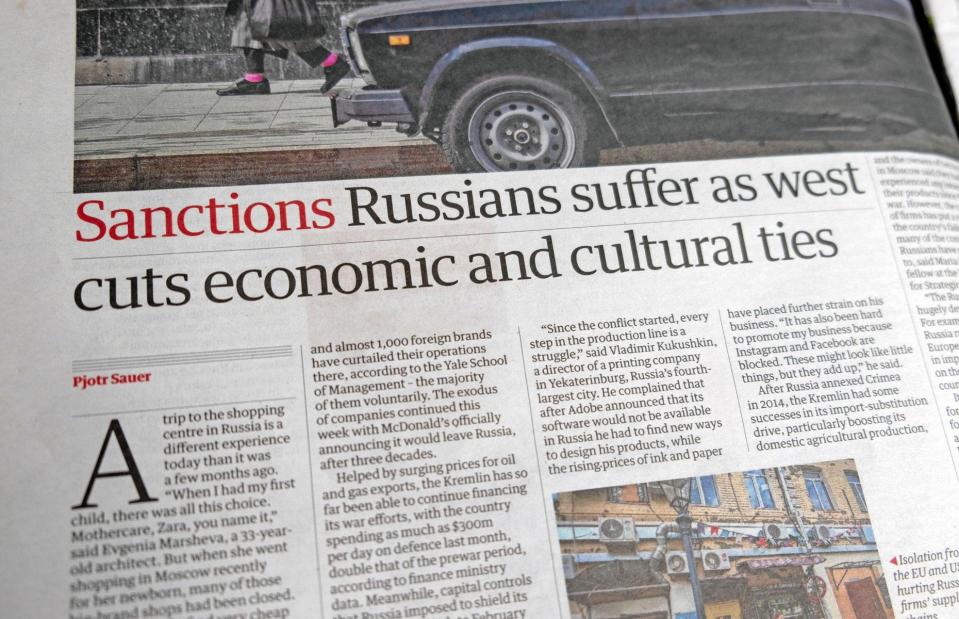
Kathy deWitt/Alamy
The sanctions, which have involved the freezing of Russia's foreign currency assets, came as "an unwelcome surprise" for Beijing, according to news site Nikkei Asia. Suddenly, China's bountiful US dollar reserves seemed under threat.
If China were to fall foul of America in a drastic way, there's every chance Washington could weaponise the dollar and inflict some serious financial damage by cutting off Beijing's US dollar reserves.
The sanctions on Russia have been a serious wake-up call for China's central bank to spread its risk and the institution accordingly ramped up its purchases of gold.
Is China buying gold to prep for a Taiwan invasion?
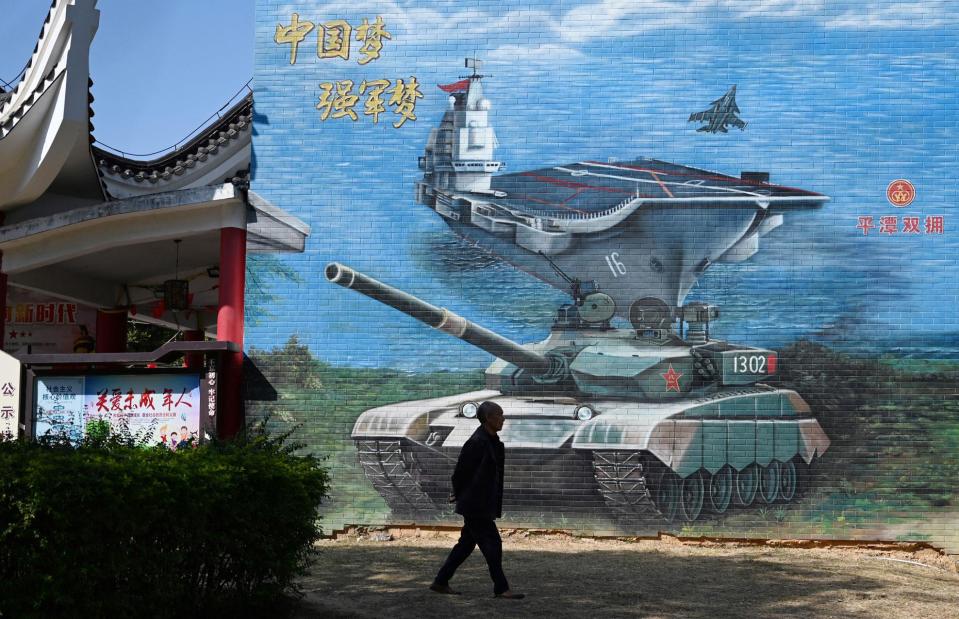
GREG BAKER/AFP via Getty Images
Whether or not China is buying up gold as a prelude to an invasion of Taiwan is open to debate – although some experts believe Beijing is stocking up on the precious metal for that very reason in a bid to safeguard its finances.
Jonathan Eyal of the Royal United Services Institute recently told The Telegraph that the prospect of a looming confrontation with the US is behind China's gold spree, explaining that "it's connected also to plans for a military invasion of Taiwan".
According to Seeking Alpha, the price of gold could soar to untold heights if China were to invade Taiwan, which would be another good reason to stock up on the precious metal.
China's vanishing gold resources
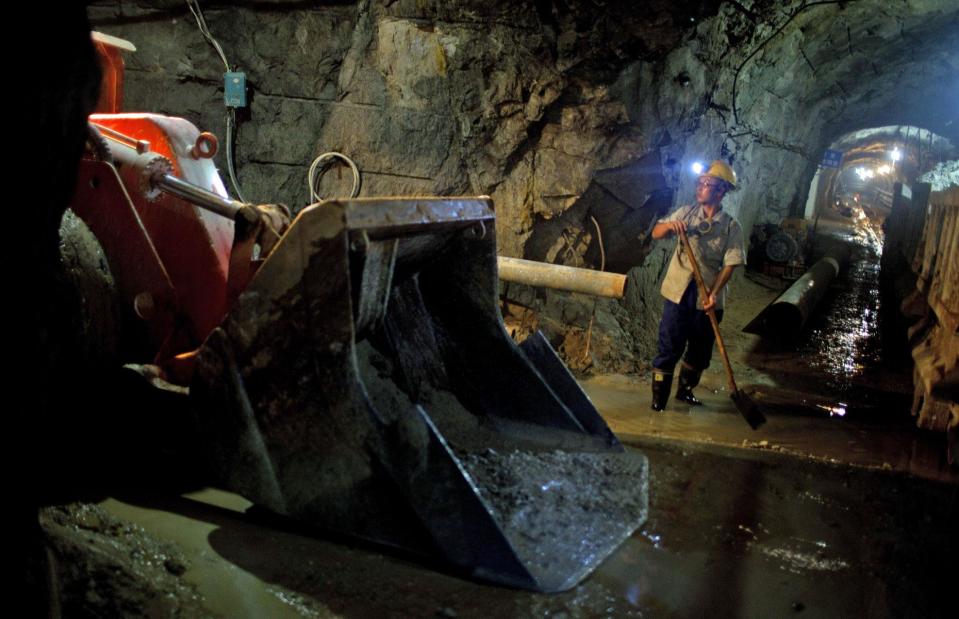
Hong Wu/Getty Images
The push to purchase as much gold as possible is also being driven by China's dwindling production and the country's central bank could most definitely be forgiven for panic-buying the precious commodity.
While the People's Republic is currently the world's leading gold producer, it's set to experience a critical gold shortage in just eight years, according to the Gold Bullion Company.
The US isn't expected to reach critical shortage status for 17 years, while other countries such as Australia and Russia have considerably greater unmined gold resources.
China's mission to dedollarise the global economy
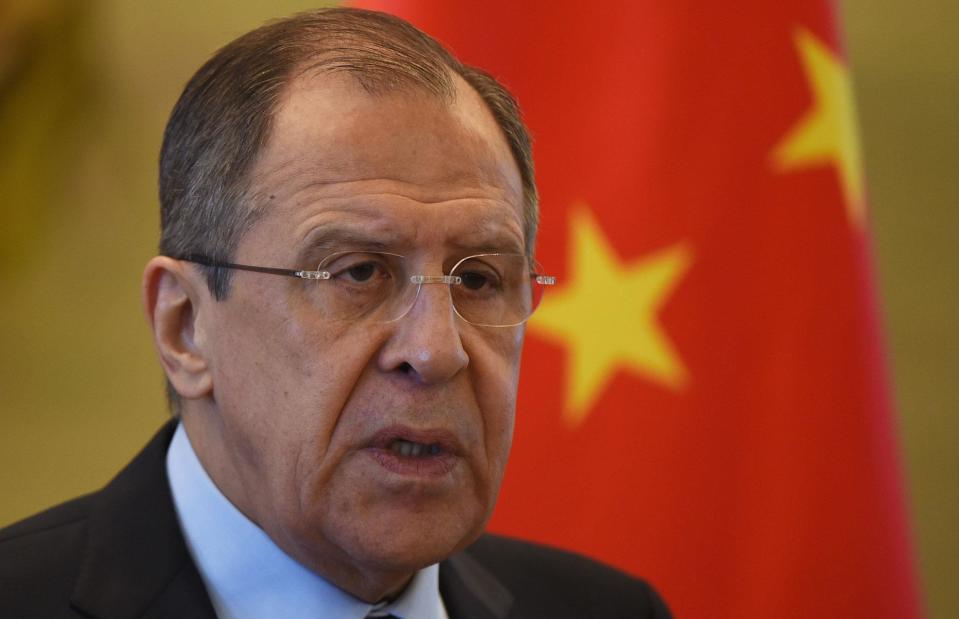
GREG BAKER/AFP via Getty Images
Experts have put forward other explanations for China's gold rush.
Beijing is on a major push to de-dollarise the global economy and has been stepping up its efforts to break the dominance of the US dollar.
China has worked out yuan trading and currency-swap deals with certain countries, including Saudi Arabia and Russia. Last month, Russian Foreign Minister Sergey Lavrov boasted that 90% of trade settlements between China and Russia are now being carried out in yuan or roubles.
China is swapping its US dollar reserves for gold
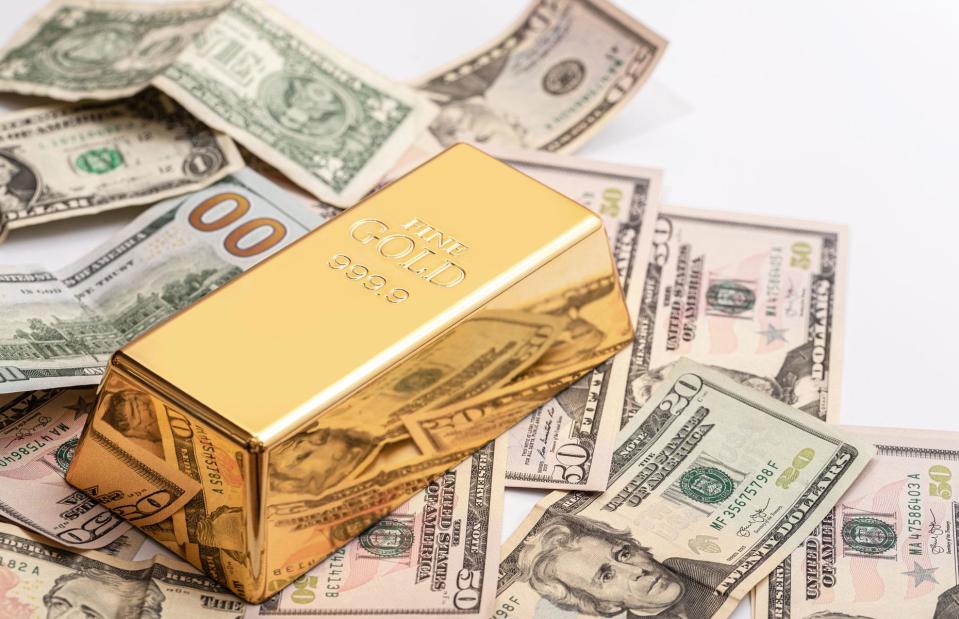
BLACKDAY/Shutterstock
Tellingly, China's central bank is tapping into its foreign currency reserves to buy the gold, whereas in the past it used yuan, the local currency.
In a nutshell, swapping its US dollar reserves for gold appears part of Beijing's mission to de-dollarise. While the lion's share of its foreign reserves remain in US dollars, the total amount of US Treasuries held by the country has fallen to a 12-year low.
The proposed BRICS currency
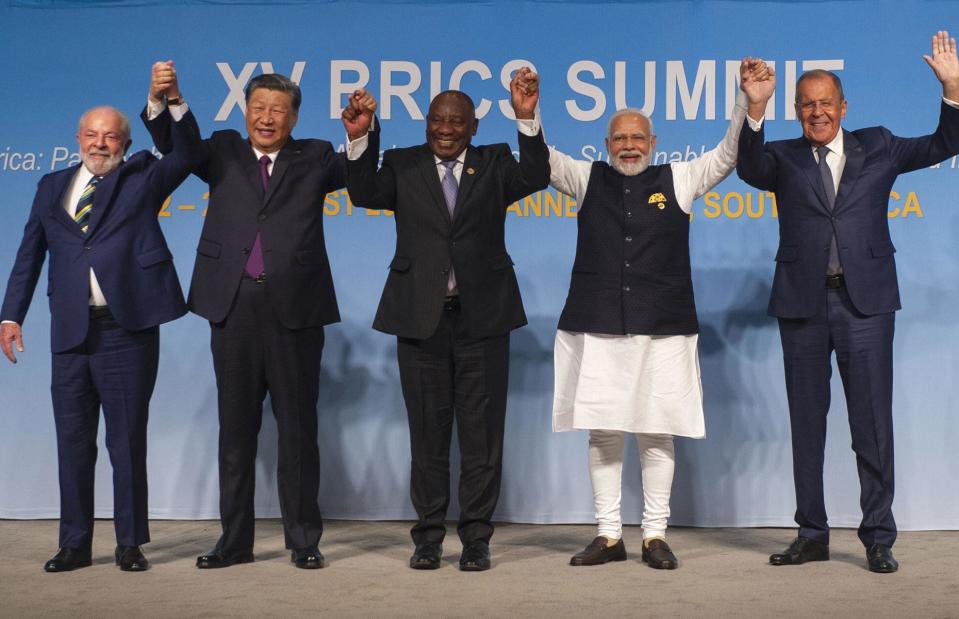
ALET PRETORIUS/POOL/AFP via Getty Images
Then there's the proposed BRICS currency. The bloc of emerging economies is made up of Brazil, Russia, India, China and South Africa, as well as Egypt, Ethiopia, Iran, Saudi Arabia and the UAE, which were admitted at the beginning of the year.
Spearheaded by Russia, the organisation is planning to introduce a currency of its own as the move to jettison the dollar for international transactions gathers pace. And you can probably guess what the new currency would be backed by...
A new currency for the Global South backed by gold
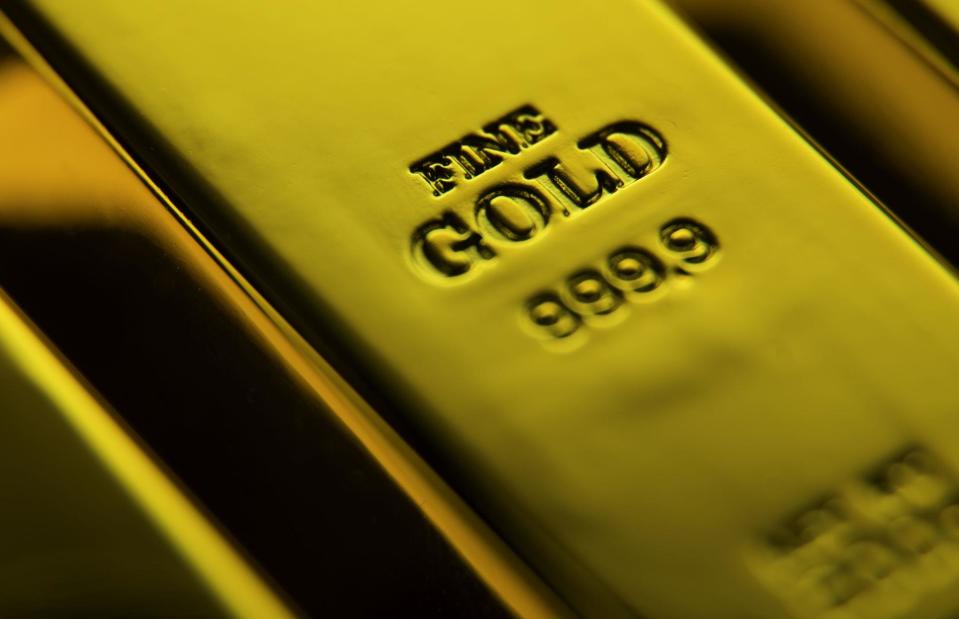
dario hayashi/Shutterstock
That's right: solid gold, domestically held. Immune to Western sanctions – unlike US dollar reserves or reserves in other leading currencies, such as the euro – a widely used gold-backed BRICS currency would be a dream come true for members of the bloc such as Russia and Iran, which are currently sanctioned to the hilt.
The currency would also be a boon for Ethiopia and Egypt, which are both plagued by US dollar shortages.
Moreover, China could invade Taiwan without having to worry about the US cutting it off completely from global trade. Beijing would have the BRICS currency to fall back on, helping to minimise its financial risk.
The US dollar's hard-to-shift global dominance
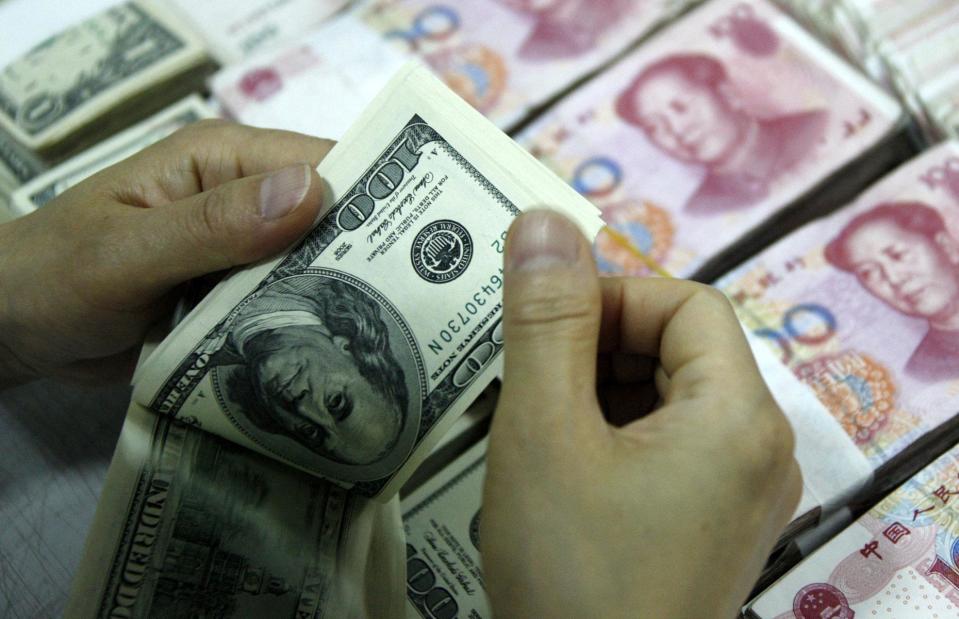
STR/AFP via Getty Images
Still, the US dollar continues to reign supreme – for now, at least.
The Atlantic Council's Dollar Dominance Monitor reveals the greenback is used in 88% of foreign exchange transactions and makes up 59% of global foreign currency reserves.
Challenging the supremacy of the US dollar with a gold-backed BRICS currency won't be easy given how entrenched it is in the global economic system, no matter how averse BRICS members are to using it. Most countries remain reliant on the US dollar to conduct international trade. But some experts believe it's eminently possible...
The potential consequences of dedollarisation for the US economy
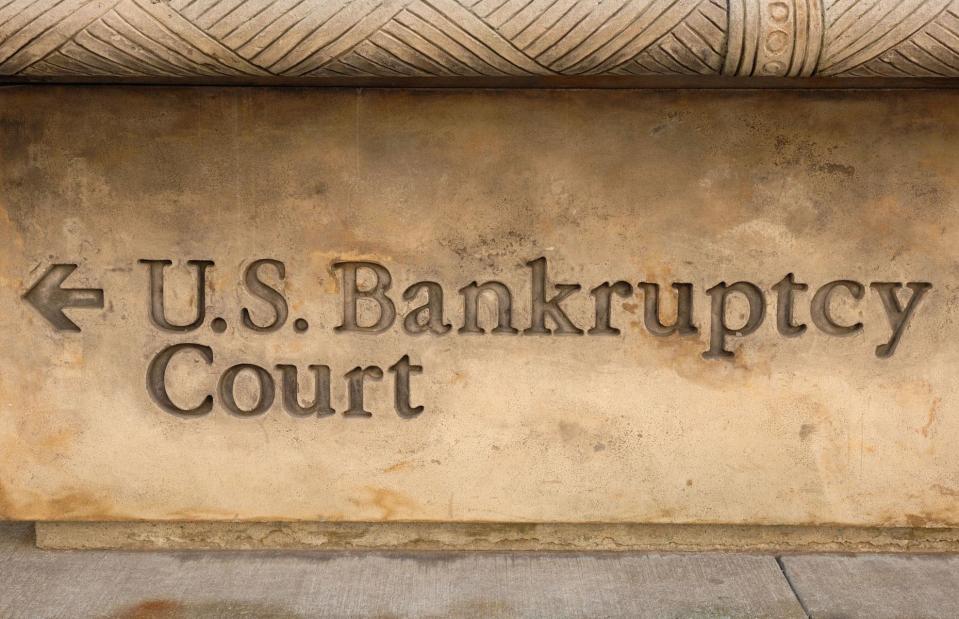
Peter Carroll/Alamy
Analyst Michael Roch of the Lowry Institute, Australia's leading think tank, has argued the de-dollarisation trend could very well take off in a game-changing way.
In a piece he wrote for the think tank's blog last August, Roch suggested it could spell catastrophe for the American economy, with central banks across the BRICS nations and other countries potentially dumping their US dollar reserves and turning their backs on the currency forever.
Is the Chinese government trying to crash the US economy?
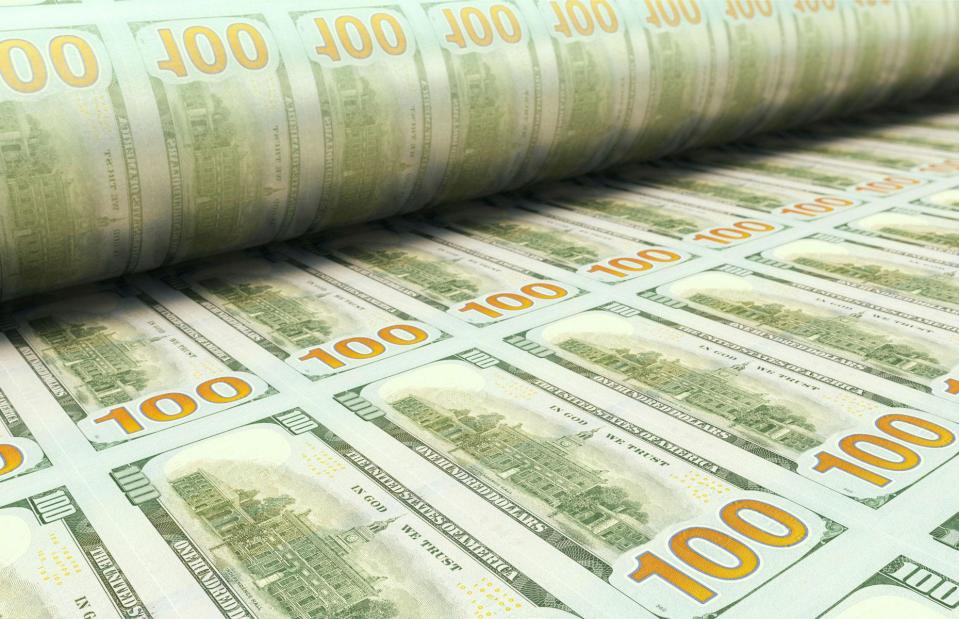
Illustronaut/Alamy
So could Beijing's de-dollarisation drive, of which the gold-buying frenzy is reportedly a key component, have the ultimate goal of toppling the US economy? Though Roach doesn't state this directly, the implication is there.
Shockingly, the Lowry Institute expert warns that the mass ditching of the US dollar would lead to hyperinflation in the US (that would probably make the price rises of the past couple of years seem tame), as well as a spike in interest rates and falling asset prices.
Whether this is wild speculation or a reasonable prediction remains to be seen, although one thing's for sure: China's gold frenzy shows no sign of settling down and could even intensify in the coming years.
Now discover the countries most in debt to China and why they're struggling to pay back their loans

 Yahoo Finance
Yahoo Finance 